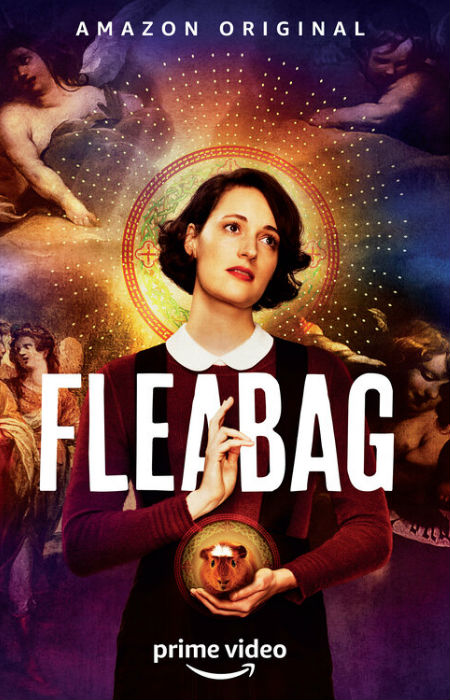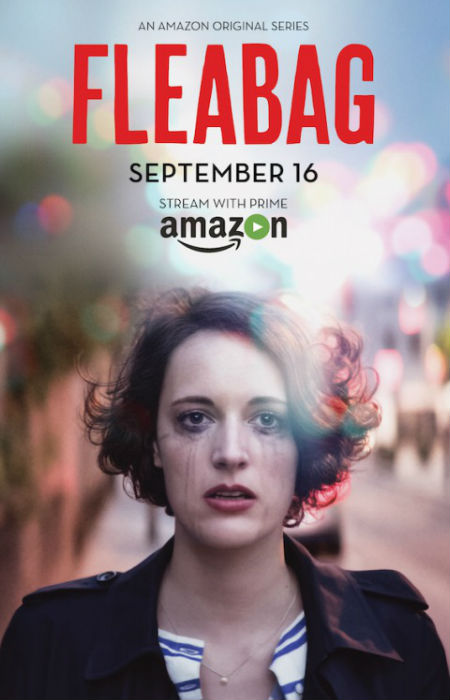
I love Fleabag.
It’s a quirky, refreshingly honest and often funny take on the messy business of human, a grossly flawed undertaking at the best of times but one made all the more impossible to navigate by the intrusion of grief which twists and turns already-challenging life situations to the point where even the remote chance we had of making a success of things is taken away from us.
The brainchild of the brilliantly-talented Phoebe Waller-Bridge, who created and wrote the series based on her hit one-woman 2013 Edinburgh Festival Fringe show of the same name, Fleabag succeeds because it doesn’t pretend that unhappiness in life is an aberration.
What a blessed relief that is!
We all know it can’t possibly be as happy and fulfilled as endless religions, feel-good gurus and wellness experts tell us it should be but it takes a program like Fleabag to give us permission to finally throw up our hands in surrender and admit that elevating happiness to some sort of pedestal-sitting goal is a recipe for, well, happiness.
That’s not to say the show, which adroitly balances darkness and light with consummate ease and the kind of empathetic understanding that only wearying life experience can buy, celebrates being miserable and utterly spent of all hope.
Quite the contrary; the main character, the eponymous Fleabag (Phoebe Waller-Bridge) wants desperately to feel like the tide of life is flowing in her direction; but reeling from the deaths of her mother (some time in the relatively recent past) and her best friend Boo from suicide (Jenny Rainsford), she is so mired in grief and self-hatred for reasons that become apparent towards the end of season 1, that her capacity to realise the dreams of unending happiness that we all hold dear is beyond her.
Distressingly, agonisingly and amusingly (at times) beyond her.
For every close moment she shares with her uptight sister Claire (Sian Clifford), there are ten more that are fraught with a lifetime of unexpressed or unaddressed issues; she tries she honestly tries to get the relationship onto a surer footing but each step forward, each tantalising sense of sisterly intimacy, such as the one at the end of episode five, is followed by a thousand steps backward.
Her relationship with her father (Bill Paterson) is similar riven, with matters complicated by the presence of Fleabag’s stepmother and onetime godmother (Olivia Colman), a self-involved artist with whom the two sisters shared not even the faintest glimmer of familial love.
If the family relationships aren’t testing enough, Fleabag’s on-again-off-again-rinse-and-repeat relationship with her boyfriend Harry (Hugh Skinner) is headed for the abyss and the one night stands she employs to keep the devastating emotional fallout of yet another failed life relationship always end in some kind of compromising pile of the proverbial.

She is, in every sense you can imagine, a manifest failure, including at running her guinea pig-themed cafe – Boo’s idea that Fleabag, for obvious reasons, cannot relinquish; you get the feeling that any rebranding would feel like Boo dying all over again – and you can well understand why, despite her irreverent fourth wall-breaking quips to camera that suggest she is all “nothing is affecting me, life is at a smirking arm’s length”, that she feels utterly bereft in every way possible.
Doesn’t sound like a whole lot of fun to watch does it?
And yet, it is, in almost every way possible.
Clever and witty writing aside, which perfectly satirises the rampant inability of any of us to get it together – Fleabag may be the standout basketcase but she is hardly alone in her ongoing failings – Fleabag is all of us.
Absolutely every last one of us.
If, like your reviewer, you grew up in an environment (in my case the church) where perfection, with God’s help of course, was venerated and unhappiness was seen as some sort of sinful lack of good life judgement, you will embrace with every last fibre of your being someone who dares to suggest that getting it all horribly wrong is more than the norm than the idealised happiness we are sold as our birthright.
Waller-Bridge manages to set us free from this albatross-around-the-neck weight while at the same time, holding open the door to the idea that happiness is possible if we can just get ourselves and our impossibly, suffocating expectations out of the way.
There is no manifesto laid out for this – Waller-Bridge is too clever for that, knowing all too well that no such easily-followed plan exists for contentment, peace and happiness.
But there are moments here and there, tiny, fleeting wisps of hope, such as the shared closeness of Claire and Fleabag is episode five or the poignant end to episode 6, and thus the season which beautifully lays out the appealing idea that we can recover from our mistakes.
That’s the secret of this witty, emotionally-evocative show – in amongst all the wry observations and blisteringly honest portrayals of our broken humanity and the compromised lives that follow in its wake, is this delicious sense that happiness might be possible.
It won’t be the world-bestriding kind that features so prominently in so many other TV shows and movies, but rather something far more realistic, a measure happiness that comes from reaching dark places, of being consumed by loss, grief and fractured relationships and not being completely done in by them.
Fleabag is confronting at times certainly because it doesn’t stint on the colossal nature of our great many failings or the destructive fallout that results from us stumbling blindly through life without any real sense of knowing what we’re doing but my lord, it is freeing!
You walk away from this show feeling emotionally battered and bruised, smiling a little (or a lot) inside about the sheer absurdity of life, but you always feel relieved that finally someone has said it’s okay to approach life on its terms, that being grittily truthful about the remote prospects for happiness and yet holding out for it anyway, is pretty much the only way you can approach life, guinea pigs, dropped champagne glasses and all.